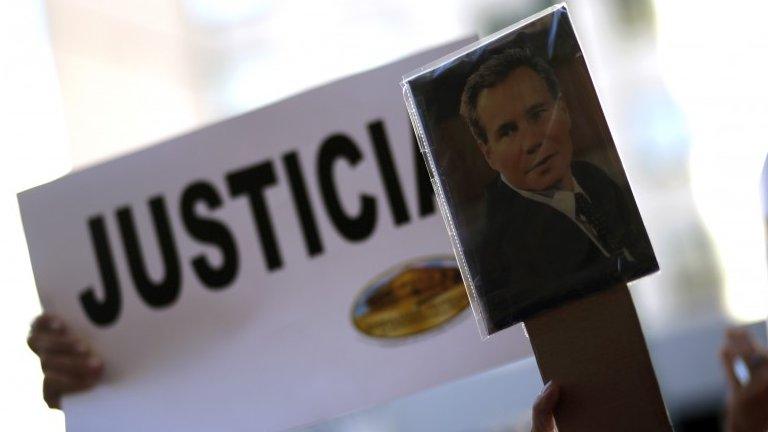Argentina: President Cristina Fernandez case dismissed
- Published
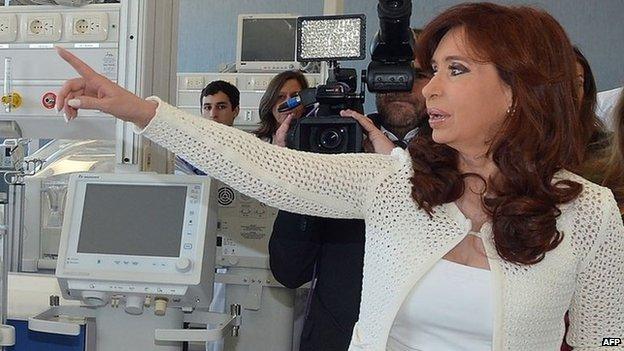
President Fernandez's second term in office ends in December
A federal judge in Argentina has dismissed a controversial case against President Cristina Fernandez de Kirchner and her foreign minister.
They had been accused of covering up alleged Iranian involvement in a bomb attack against a Jewish centre in 1994.
Judge Daniel Rafecas has concluded that there was not enough evidence to pursue the charges.
The accusation came from special prosecutor Alberto Nisman, who was found dead last month in his flat.
Judge Rafecas said he was throwing out the case after carefully examining Mr Nisman's 350-page report.
There was no proof that an agreement signed by the Argentine government with Iran in January 2013 was an attempt to shield the involvement of senior Iranian officials in the attack, the judge said.
'No legal basis'
The agreement was rejected by the Iranian government two months later and was never approved by Iran's parliament.
Defence Minister Agustin Rossi welcomed Judge Rafecas' ruling saying: "We have always said that Nisman's claims had no legal basis."
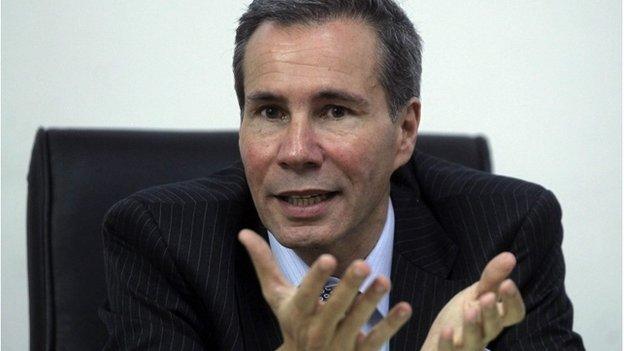
Mr Nisman was found dead just hours before he was due to give evidence to a congressional committee

The Argentine press reacts
The case has dominated the Argentine press for the past six weeks, and this latest development has only driven media interest to new heights.
Several commentators reflect the sense of relief the ruling is likely to have prompted inside the presidential palace.
"Rafecas has given Cristina space to breathe," Adrian Ventura writes in the La Nacion daily, while Clarin's Eduardo van der Kooy comments that Ms Fernandez will now be able to give her last speech to Congress on Sunday with a "less sullied image".
But in the Buenos Aires Herald, Luciana Bertoia is more sceptical, writing "CFK in the clear (for now)".
Noticeably absent is any comment from Ms Fernandez herself. The normally Twitter-friendly president has yet to address her 3.59 million followers about the ruling.

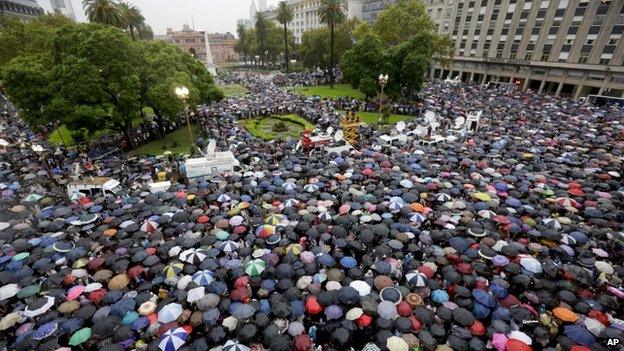
Thousands of people marched through the streets of Buenos Aires last week to demand justice for Mr Nisman
The case against Ms Fernandez and Foreign Minister Hector Timerman is now closed.
But the BBC's Wyre Davies says the judicial system in Argentina is highly politicised and the decision to cease investigations will further polarise a divided nation.
'Rogue agent'
Mr Nisman was due to testify in Congress against Ms Fernandez and Mr Timerman the day after his body was found.
The circumstances of his death have not been clarified.
President Fernandez said Mr Nisman been fed misleading information by a rogue intelligence agent. The government has rejected any role in his death.
The lower house of the Argentine Congress has meanwhile approved a bill scrapping the country's secret agency, the Intelligence Secretariat.
The proposal was first announced days after Mr Nisman's death, on 18 January.
A new federal investigative agency, which will be accountable to Congress, will replace it.
Ms Fernandez said the change was overdue because the agency had remained largely untouched since the end of military rule in 1983.
The opposition called the proposal a smokescreen for its involvement in the scandal.
- Published28 January 2015
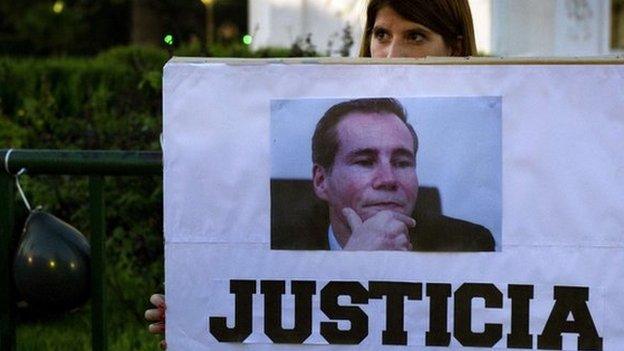
- Published23 January 2015
- Published5 February 2015
